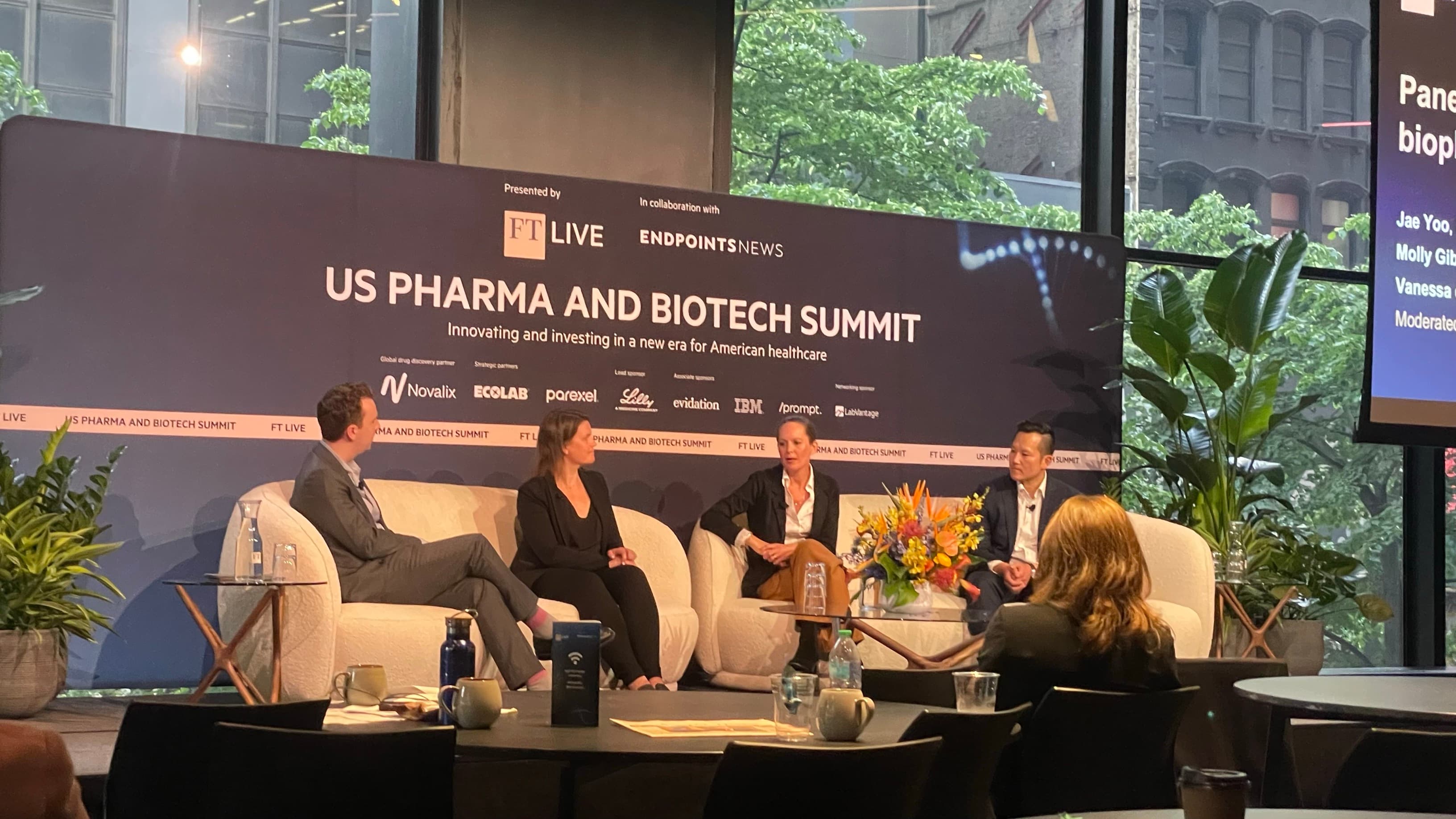Navigating Workforce Disruption in Biopharma: Insights from the US Pharma and Biotech Summit
May 2025
Navigating Workforce Disruption in Biopharma: Insights from the US Pharma and Biotech Summit

The pace of change in biopharma has never been faster – and that was front and centre at this year’s US Pharma and Biotech Summit, held in New York City. Co-hosted by The Financial Times and Endpoints News, the summit is a flagship gathering for the life sciences industry. Bringing together senior executives, investors, policymakers, and innovators, the summit offered a panoramic view of the forces reshaping life sciences – from funding headwinds to AI adoption and talent strategies.
The 2025 agenda focused on navigating investment volatility, regulatory uncertainty, and breakthrough innovation, with panels spanning clinical development, commercialisation, and workforce evolution.
EPM Scientific Executive Director Jae Yoo had the opportunity to speak on a panel titled "The Changing Shape of the US Biopharma Workforce", where he joined other leaders in exploring the critical dynamics shaping today’s hiring, retention, and workforce development strategies.
Below you’ll find key themes discussed during the panel, as well as additional exclusive insights from Jae.
Biopharma talent in flux: growth, downsizing, and everything in between
The panel discussion kicked off with a deep dive into how fluctuations in pipeline data, funding rounds, and research priorities impact talent decisions. As Jae noted, positive pipeline results often bring in capital and fuel hiring sprees, while negative news can lead to restructurings or freezes. But it’s not one-size-fits-all. Some firms double down on R&D instead of scaling back.
This variability has made talent strategies more complex, especially as biopharma companies balance long-term innovation with short-term financial realities. And as companies transition from the lab to the clinic, the need to pivot quickly – sometimes reskilling teams or shifting entire departments – has become commonplace.
AI’s impact: disruption and opportunity
Another focus of the panel was the growing role of AI in reshaping biopharma roles. Positions in data management, medical writing, and clinical monitoring are increasingly being automated. Yet, this is also creating opportunities for roles in AI-driven drug discovery, smart clinical trial design, and precision manufacturing.
The message was clear: AI isn’t eliminating jobs, it’s transforming them. The workforce population that has perhaps the most questions surrounding its future is the entry-level professional. As AI tools become more advanced and widely adopted, many routine, process-driven tasks traditionally assigned to junior staff, such as data entry, lab reporting, regulatory documentation, and clinical trial monitoring, are now being automated. This shift places entry-level positions at the greatest risk of displacement.
The definitions of entry-level will change, but it won’t go away. Maybe a junior data entry position won’t exist, but a person's access to technology earlier on in life means that these positions will actually end up being more advanced, and therefore our expectations of the entry-level person will change.
Competing for talent beyond biotech
Retaining top-tier STEM and AI talent has become a pressing challenge as pharma and biotech firms now find themselves competing directly with tech and finance companies. These industries often offer higher base salaries, more flexible work environments, and faster career mobility – making them attractive to younger professionals. Jae’s advice, however, is to take a longer-term approach to your career progression.
This isn’t to say that compensation isn’t important, it is, but I’ve seen a lot of people take on their first role that maybe they weren’t super excited about, but because it was an environment where they could learn and hone key skills, then 5–10 years down the road these people will actually end up making more than those who accepted the higher salary at the jump. You don’t have to take the highest dollar amount every time.
With this, however, Jae emphasised that biopharma companies then must offer more than just compensation if they want to attract candidates from this highly competitive talent pool. Meaningful work, the ability to contribute to transformative science, and hybrid work flexibility are now critical factors in talent retention.
One of the major benefits to working at a biotech firm that Jae pointed out is that professionals are working in a smaller, much more collaborative environment, where everything they do has significant implications and impact. And this experience is rewarded. He noted that his team has seen Principal ML Research Scientists with 5–6 years of experience receive salaries comparable to that of a Chief Medical Officer with 10+ years of experience – and much more schooling.
If you are looking to strengthen your biotech team or explore new opportunities in the life sciences industry, EPM Scientific is ready to support your next move with precision and expertise. Request a call back from our team of talent experts, or browse the latest roles to discover your next career opportunity.
Let’s talk talent
Need the right talent for your next hire, or guidance on your people strategy? Leverage our experience to help you and your business today.
Advancing your career
Want to be one step ahead in your career? Our industry experts have the relationships and global reach to realise your full potential.
